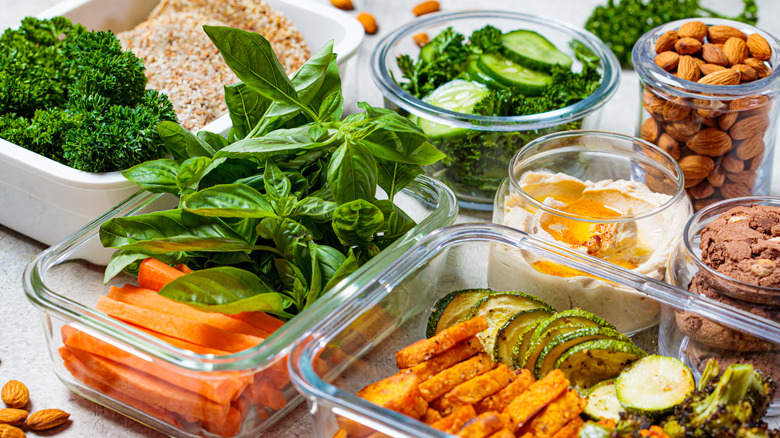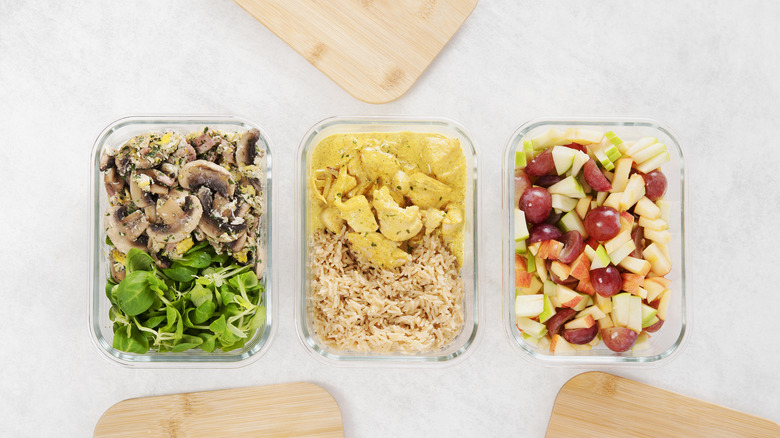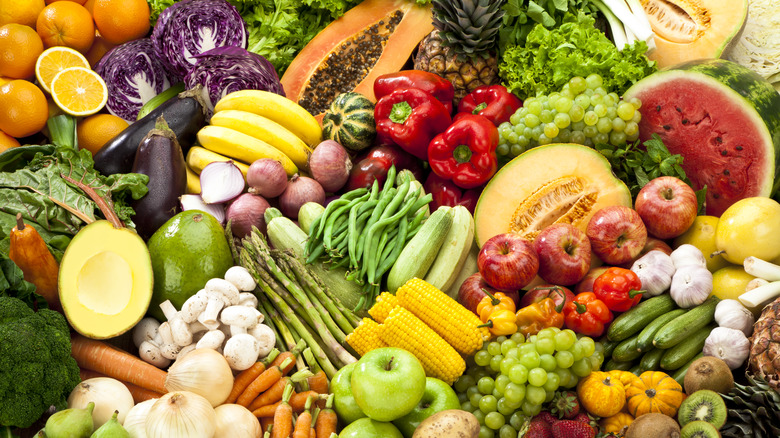The Biggest Mistake You're Making With Meal Prep
If your goal is to plan and create balanced meals all week long, learning how to efficiently meal prep will save you a lot of time and effort. But it's easy for people to get overwhelmed at the idea of cooking an entire working week's worth of meals in that last sliver of weekend that you have left. Luckily, we've got some advice from Lindsay Livingston, RD, who is a blogger at The Lean Green Bean, where she shares tips for Mastering Food Prep and other Food Prep Resources.
As Livingston told Food Republic, focusing on one meal can be a lot more manageable than trying to account for all of them at once. "Choose the meal you struggle with the most, whether it's finding time for breakfast on busy mornings, not having any healthy snacks on hand or wishing you had a packed lunch instead of having to eat out every day, and then focus your meal prep session on items that will make that time of day easier."
If you try to go meal by meal, for three meals plus snacks per day, you might run out of energy by the time you get through Monday. But batch cooking for breakfast, lunch, or dinner can help streamline things, whether that's making a pot of chili you can have for a few dinners and freeze the rest of, or baking a frittata for an easy savory breakfast.
Prep your components for easy cooking
Once you identify the area of home cooking you want to zero in on, it's time to assemble the base ingredients you want to have on hand. Mixing and matching a few ingredients to make several different kinds of meals is called cross-utilization or component cooking, and can set you up for versatility in the kitchen.
"I always try to make sure I'm prepping vegetables and proteins so that I have them on hand to build quick meals. For me, adding carbs is the easiest so I don't worry as much about those," Livingston told Food Republic. "You can also make a list of the meals you're planning to eat that week and then figure out what will take you the most time to make each day, and see if any of those things can be prepped ahead of time."
So, for example, if you have a batch of cooked pasta ready to go, you could consider roasting a variety of proteins and vegetables together that can be used for different flavor combinations. One sheet pan could have chicken breasts surrounded by sliced onions, summer squash, and zucchini, while another pan the next rack down could have a block of feta, a bunch of cherry tomatoes, and a head of garlic. Since you already have the starch base, you can divide and conquer with different ingredient sets.
How to meal prep and prevent spoilage
Being more intentional about your meal prepping process can be a great way to save time and money, as well as prevent unnecessary food waste. Just make sure that you're keeping track of your ingredients to avoid spoiling. As a general rule, shop and prep for the week, since fresh produce and raw meat have limited shelf lives, even when properly refrigerated. Plan to cook more perishable items first, especially raw animal products. Chicken and fish should both be cooked within one or two days, while beef and pork last a little longer, between three and five days. However, once they are cooked, their shelf life is immediately extended by a couple of days.
For vegetables, look to the fast wilters first, like bagged leafy greens. For salad greens meant to be eaten raw, store them with a paper towel in the container to help absorb moisture. Heartier vegetables, like kale, broccoli, or cabbage, can be saved for later in the week, and will last longer once cooked. Starches don't tend to spoil as visibly, but cooked grains should still be eaten within about five days for best results.



